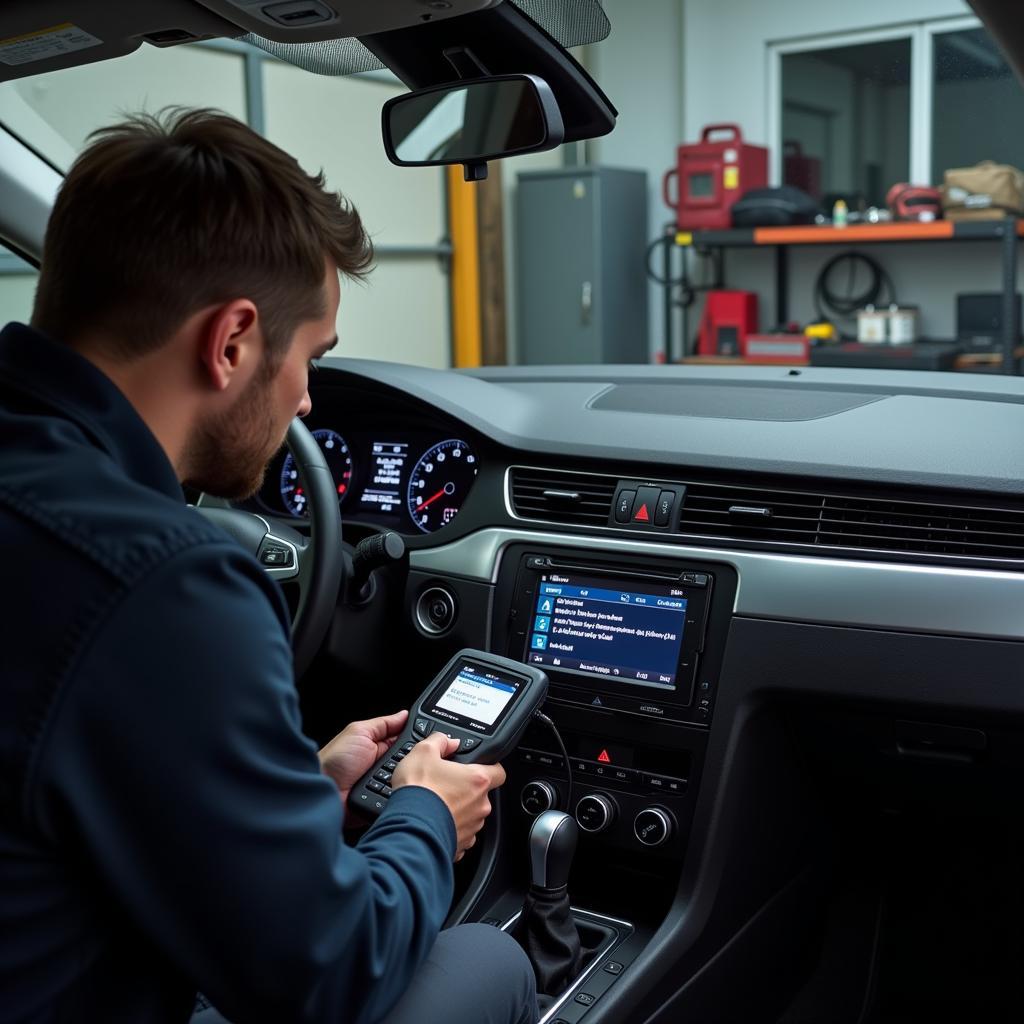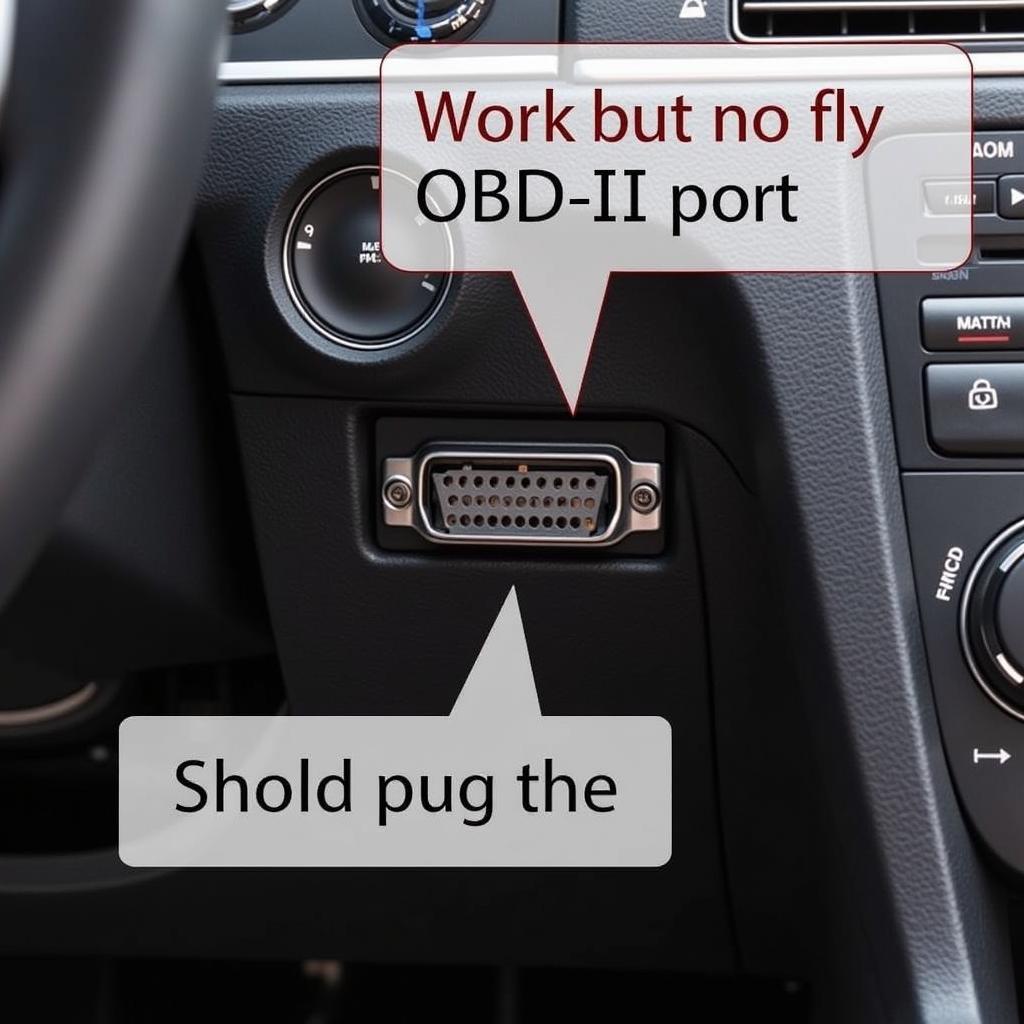Your cart is currently empty!

Decoding VW Passat Codes: A Comprehensive Guide
Understanding VW Passat codes is crucial for maintaining your vehicle’s performance and longevity. Whether you’re a DIY enthusiast, a seasoned mechanic, or a curious owner, this guide will equip you with the knowledge to diagnose and address those pesky trouble codes that can plague your Passat.
What are VW Passat Codes and Why Do They Matter?
VW Passat codes, also known as Diagnostic Trouble Codes (DTCs), are alphanumeric codes that your car’s onboard computer (ECU) generates when it detects a malfunction within a system. These codes are like breadcrumbs, leading you to the source of the issue. Ignoring these codes can lead to further damage and expensive repairs down the road.
Common VW Passat Codes and Their Meanings
From faulty oxygen sensors to misfiring cylinders, a wide range of issues can trigger VW Passat codes. Let’s explore some common culprits:
- P0420: This code often indicates a problem with the catalytic converter system efficiency below threshold.
- P0171: This suggests a lean fuel mixture (too much air, not enough fuel) in bank 1.
- P0300: This points to a random/multiple cylinder misfire detected.
- P0101: Mass or Volume Air Flow Circuit Range/Performance Problem.
 VW Passat Code Scanner Being Used
VW Passat Code Scanner Being Used
How to Read VW Passat Codes
Reading these codes requires an OBD-II scanner, a readily available tool both online and at auto parts stores. Simply plug the scanner into the OBD-II port (usually located under the dashboard), turn the ignition on (without starting the engine), and the scanner will retrieve the stored codes.
Troubleshooting VW Passat Codes: A Step-by-Step Approach
- Retrieve the codes: Use your OBD-II scanner to obtain the codes. Write them down.
- Research the codes: Use online resources or repair manuals to understand the potential causes.
- Inspect related components: Check the components related to the code for visible damage or loose connections.
- Test components: If necessary, use a multimeter or other diagnostic tools to test the components for proper function.
- Repair or replace: Replace any faulty components or repair any damaged wiring.
- Clear the codes: After the repair, use the scanner to clear the codes from the ECU’s memory.
- Verify the fix: Drive the car and monitor for any recurring issues or codes.
 Mechanic Performing Engine Diagnostics on a VW Passat
Mechanic Performing Engine Diagnostics on a VW Passat
“Don’t just treat the symptom, find the root cause,” advises John Miller, a veteran automotive engineer with over 20 years of experience. “Using VW Passat codes as your guide, you can pinpoint the issue and avoid unnecessary parts replacement.”
Understanding Different Types of VW Passat Codes
VW Passat codes are categorized into different types:
- Powertrain (P codes): These relate to the engine, transmission, and emissions systems.
- Chassis (C codes): These concern the anti-lock brakes, steering, and suspension.
- Body (B codes): These relate to components like airbags, power windows, and central locking.
- Network (U codes): These involve communication issues between the various control modules.
 Locating the OBD-II Port on a VW Passat
Locating the OBD-II Port on a VW Passat
“Misinterpreting VW Passat codes can lead to wasted time and money,” warns Sarah Chen, an automotive diagnostics specialist. “A proper understanding of the code and its implications is essential for effective troubleshooting.”
Conclusion: Mastering VW Passat Codes
VW Passat codes are your allies in keeping your car running smoothly. By understanding these codes and employing a systematic approach to troubleshooting, you can save time, money, and frustration. Remember, a little knowledge goes a long way in the world of automotive diagnostics. Need assistance with your VW Passat codes? Connect with us at +1 (641) 206-8880 and our email address: vcdstool@gmail.com or visit our office at 6719 W 70th Ave, Arvada, CO 80003, USA. We’re always ready to lend a hand and get you back on the road.
FAQ
- What does it mean when my check engine light flashes? A flashing check engine light indicates a serious issue that requires immediate attention.
- Can I drive my car with the check engine light on? While you might be able to drive, it’s best to address the issue promptly to prevent further damage.
- Where can I find reliable information on VW Passat codes? Online forums, repair manuals, and dedicated websites offer valuable resources.
- How often should I check my car for codes? Periodic checks, especially if you notice unusual car behavior, are recommended.
- What’s the difference between generic and manufacturer-specific codes? Generic codes (P0XXX) apply to all OBD-II compliant vehicles, while manufacturer-specific codes (P1XXX) are specific to Volkswagen.
- Do I need a special scanner for VW Passat codes? While any OBD-II scanner will read generic codes, a Volkswagen-specific scanner might offer more detailed information.
- Can I clear VW Passat codes myself? Yes, you can use an OBD-II scanner to clear the codes after addressing the underlying issue.
by
Tags:
Leave a Reply